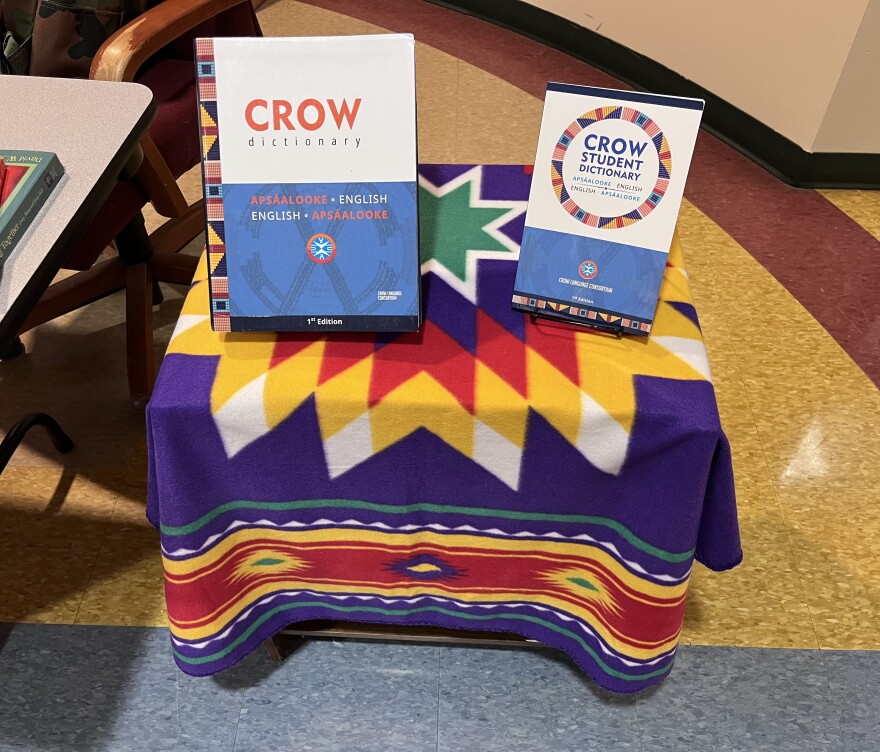A handful of teachers gathered in Crow Agency one weekday morning for a workshop in the 11th year of the Crow Summer Institute, a summit over two weeks in June and July where beginners and fluent speakers alike learn the Apsáalooke language, share ideas and collaborate on lesson materials.
Among the attendees was 63-year-old Reva Little Owl, who has been a teacher for over 30 years and is one of the educators involved in leading immersion classes for Crow Nation children.
“Crow was my first language,” she said. “Speaking Crow is part of my identity, and I believe that children need that identity to be successful.”
Educators, linguists and organizations in Montana and elsewhere are rushing to document the Crow language, record the knowledge of elders and share it with young learners.
46-year-old Little Big Horn College instructor Vance Crooked Arm said he noticed at the beginning of his career that Crow was not widely spoken among the children he taught.
“I was kind of scared we were going to lose our language, and I said, man, I better do something ‘cause if nobody does anything, we’re gonna lose it,” he said.
Loss of language is one part of the legacy of forced assimilation that the United States government supported in Montana and nationwide through the 1970s. Crooked Arm says stories about children being punished for speaking Crow are commonplace in Crow families, including his.
“When [my dad] was in grade school, he said that when they spoke Crow, they would hit him. His teachers would hit him,” he said.
The Crow Nation in 2011 found that fewer than 15 percent of preschoolers spoke fluent Apsáalooke, according to Crow tribal member and Little Big Horn College founding president Janine Pease.
Pease sits on the board of the Crow Language Consortium, a network of schools, colleges and educators committed to preserving Apsáalooke. Part of that effort has involved publishing children’s books, a phone app, dictionaries in multiple formats and other language resources - with more projects in the works.

“The schools will progress through our materials, and we're very anxious to have all the building blocks that children can use to acquire vocabulary and to construct conversations,” said Pease.
She said young students for the past eight years have been taking language immersion classes as part of an evolving program to increase Crow language fluency.
Pease said ongoing written projects geared toward students in kindergarten through 4th grade include reading materials on Crow Nation leaders that children can look up to and major moments in Crow history.
A dictionary for children from members of the Crow Language Consortium is also due for release in the fall.



